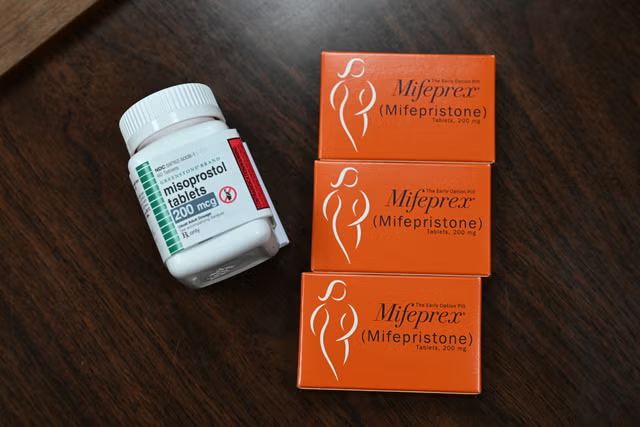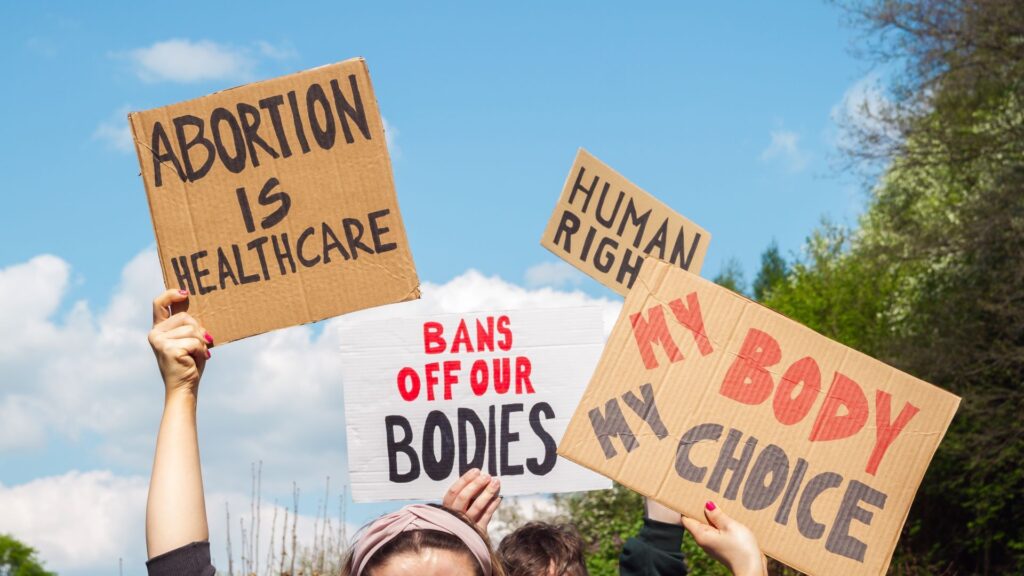
Containers of mifepristone and misoprostol, the two drugs used to perform a medical abortion. The top supplier of abortion pills in the US said they received more than 5,000 orders in the first 12 hours after Donald Trump secured his second White House victory. Photo: Getty
Washington, D.C., Nov. 6, 2024 — As Donald Trump is reelected, demand for abortion medications and long-lasting contraceptive methods has surged, as women and reproductive health advocates brace for potential restrictions under the incoming administration.
Aid Access, a significant provider of abortion pills, reported an unprecedented 10,000 requests within 24 hours of the election being called, a stark rise from the organization’s usual 600 daily inquiries, reflecting growing fears among women who worry that their reproductive rights may face new limitations.
Check out similar stories by clicking the links below, or just keep scrolling to read the rest of the article for free.
- Capitol riot suspects are asking judges to halt their cases, saying Trump promised them pardons
- Energy specialists note that a Donald Trump presidency 2.0 will impact gas prices across the United States
- America Ferrera, ‘Devastated’ by Trump’s win, considers leaving the US as America is no longer safe for Latinas and women
- ‘Deeply sorry’: Donald Trump’s estranged niece, Mary, a psychologist and author of ‘How My Family Created the World’s Most Dangerous Man,’ breaks silence on his historic win
- Pakistan’s government, desperate to sell Pakistan International Airlines (PIA), which is grounded in the EU over a fake pilot scandal, has received a sole bid of $36 million
Just the Pill, a nonprofit offering abortion medication via telemedicine, saw a similar trend, with 22 of the 125 orders received from Wednesday through Friday coming from individuals who weren’t pregnant, a request type rarely seen before, according to the organization’s interim executive director, Julie Amaon.
Interest in contraceptives beyond abortion pills has also intensified.
Plan C, a platform offering guidance on access to abortion medications, reported a significant uptick in website traffic, with visitor numbers surging from an average of around 4,000 daily views before the election to 82,200 on Wednesday alone.
Other reproductive-health organizations, though not specifying figures, confirmed increased demand for emergency contraception like the “morning-after” pill, as well as permanent birth control methods such as intrauterine devices (IUDs) and vasectomies.
“People understand that the threat to abortion access under a Trump administration is both very real and dire,” said Brittany Fonteno, president of the National Abortion Federation.
“People are understandably concerned about their ability to get the care that they need.”
The shift in demand is tied to uncertainty surrounding Trump’s stance on abortion, which has varied over the years.
During his previous term, Trump appointed three Supreme Court justices, setting the stage for the court to overturn the national right to abortion in its decision on Dobbs v. Jackson Women’s Health Organization.
Antiabortion advocates continue to pursue legal means to restrict access to mifepristone, one of two medications used in combination to induce abortion, while certain far-right groups inaccurately claim that emergency contraceptives and IUDs function as abortifacients.
Historically, women have prepared for potential limitations on abortion access by stockpiling medication.

A study published in JAMA Internal Medicine revealed that following the leak of a draft decision for Dobbs in May 2022, requests for abortion pills from nonpregnant individuals through Aid Access saw a tenfold increase.
Further, in response to Trump’s initial victory in 2016, an increasing number of women with private health insurance sought IUDs, a long-acting reversible contraceptive, as a precaution.
Planned Parenthood reported that requests for vasectomy consultations rose 1,200 percent on Wednesday compared with the previous day, while IUD-related appointments increased by 760 percent.
Winx Health, a company providing reproductive health products, disclosed a sevenfold increase in sales of emergency contraception that same day compared to the prior week, though neither organization shared absolute figures.
The response among individual women has been swift.
Sohana Pai, 24, a medical student in Kansas City, Missouri, who has never previously used birth control, made an immediate appointment with her OB-GYN to discuss getting an IUD.
Motivated by a desire to retain control over her reproductive choices, Pai cited the urgency imposed by Project 2025, a Heritage Foundation-backed policy plan promoting Republican-led abortion restrictions, albeit not a national ban.
“That’s just a little bit of pain to last me eight years, and I feel like that’s kind of worth it,” she remarked, expressing frustration at feeling pressured into such preventive steps.
For Briana Schneekloth, 20, a junior at Temple University in Philadelphia, securing a long-lasting contraceptive became a priority early Wednesday.
“We need to get implanted birth control or IUDs,” she messaged a friend upon learning of Trump’s victory.
Schneekloth said that while she is concerned about the side effects associated with hormonal birth control, her worries about losing access to abortion or contraception under the Trump administration outweigh these potential risks.

The surge in abortion medication orders has tested suppliers’ capacity.
Aid Access experienced a brief website crash due to demand on Wednesday, and founder Rebecca Gomperts noted that orders came not only from states with restrictive abortion laws but also from those with protective policies in place.
“People don’t trust anymore that the laws in the states will protect them,” she said.
Concerns are rising that federal restrictions on abortion medications could become a reality.
Elisa Wells, co-director of Plan C, said the surge in her site’s traffic reflects fears that a Trump administration might direct the FDA to limit access to mifepristone, especially by imposing restrictions on mail-order abortion medication.
Antiabortion advocates have called for a revival of the Comstock Act of 1873 to prevent the shipment of abortion pills by mail.
While Trump dismissed this idea in an interview with CBS News in August, Vice President-elect JD Vance has urged the Justice Department to enforce the act, arguing that it should “shut down all mail-order abortion operations.”
While no concrete changes have been announced by the administration regarding reproductive health policy, Fonteno indicated that callers to her organization’s hotline have expressed confusion and fear about the status of abortion legality and appointment availability.
Many were also anxious about potential limitations on birth control options, especially IUDs.





